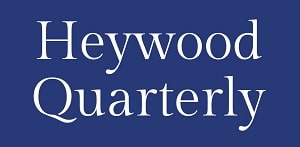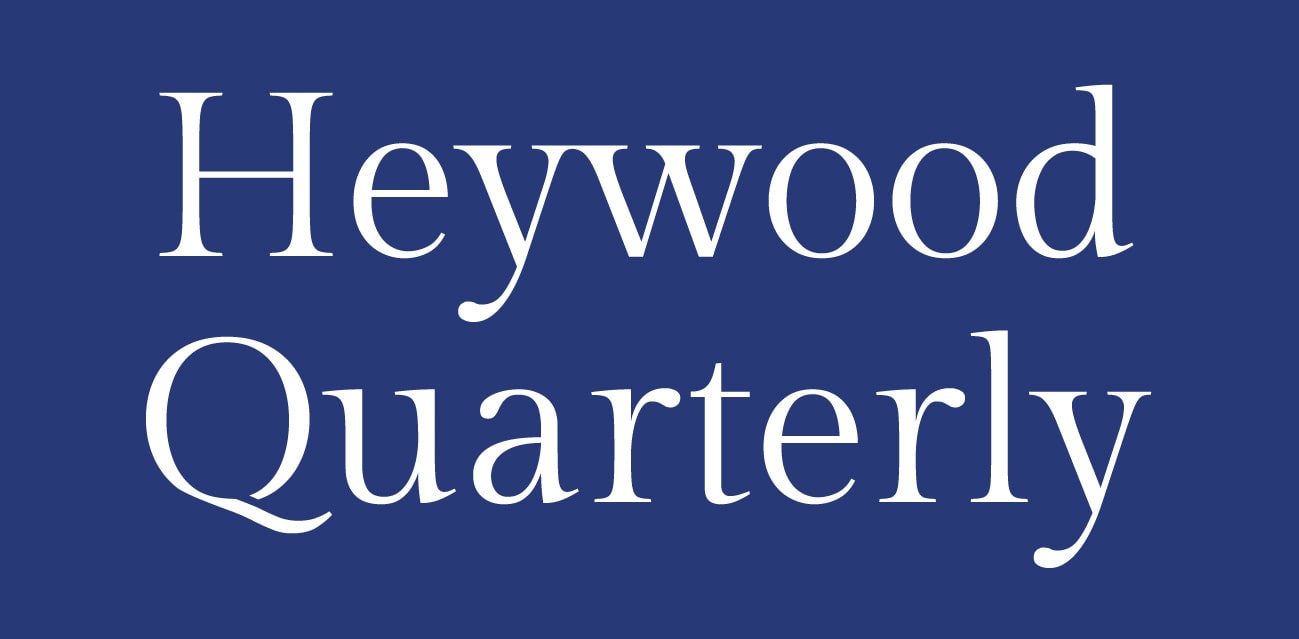In this edited summary of an extensive discussion in Spring 2025, Peter McDonald talks to one of Whitehall’s most senior civil servants of the last 15 years about the lessons she took from being at the centre of government, and having a ringside seat during Brexit and the Covid pandemic
“We weren’t supposed to win” Helen MacNamara declares as she looks back on London’s successful bid for the 2012 Olympic Games. It is an unusual admission from someone in government, let alone its senior echelons. But sometimes great things come from unplanned events.
In this case, London’s improbable victory also set Helen on a path of discovery about the ‘orchestration’ of government, the role of Cabinet and its relationship to the Prime Minister, the importance of humility and humanity, and why public servants need to stand on the shoulders of those who went before.
Her insights are derived from a 20-year career in the Civil Service, starting with her time at the Department for Culture, Media and Sport (DCMS), before moving to the Cabinet Office, with spells as Director General of Propriety and Ethics in the Cabinet Office (during 2018), Deputy Secretary to the Cabinet from late 2018, and Deputy Cabinet Secretary from early 2020. Since leaving government in 2021, she has spent time in the private sector and stayed involved in the public debate on improving the machinery of government.
An Olympic achievement
Helen’s time in government started with another accidental turn of events. “I didn’t even know I was joining the civil service; I thought I was going to do something in the arts” she says with amusement as she recalls applying for a job that turned out to be part of the DCMS in 2002. But it proved valuable to start her career at the edge rather than at the centre of government.
“I’m unashamedly pro-DCMS as a model for government” Helen extols. As she tells it, to work in the department was to seek to influence some of the most successful sectors of the British economy, but with neither a large budget to allocate nor much patronage to confer. To get things done, the department had to master the art of orchestration and partnership. “There are all these weird and wonderful organisations that DCMS faces into” she explains. So to do government effectively meant “proper influencing and partnering” – quite different from the approach of “here’s my programme, here’s my law, do as I say”, which can sometimes be found in larger, more intrinsically powerful government departments.
As for the Olympic project, this was viewed with scepticism by the majority in Whitehall, conditioned by disappointment from past bids and a Cabinet scarred by experience of a failed World Cup bid and the Millennium Dome. But the tactical alliance between Tessa Jowell – who wanted to catalyse the development of British sport – and Ken Livingstone – who cared deeply for the regeneration of East London – provided a way to put a bid on the table.
Whitehall had nevertheless written the script long before officials made their final pitch at the decision ceremony in Singapore. “We were supposed to produce the best bid – and then come second to the French” Helen recalls. But ‘Team GB’ came out on top and she returned to a government awash with apprehension.
What happened next? “I have given open evidence to four public inquiries in my time,” remarks Helen, but “never on the Olympics”. While success is seldom studied with the same scrutiny as failure, in this case, it is worth pausing to consider why the games went (mostly) right.
The Olympic project, she explains, brought together a diverse mosaic of actors: central government departments, local councils, independent delivery bodies and private sector partners. Each had their own priorities and pressures, making traditional hierarchical governance impossible. “People were absolutely sure that DCMS would not be allowed to take the lead, but thankfully it never got taken over by the Cabinet Office or another big department.” Instead, DCMS deployed its familiar toolkit – relationships, influencing, partnering – to turn complexity into a coherent Olympic delivery structure. “It was anchored in the reality of the situation” – making a virtue of pooled accountability and distributed ownership, albeit in suitably codified governance. As such, the arrangements sought to accommodate the reality of the “extraordinary, messy, interesting world” rather than assert a top-down model.
At the heart of this complex network stood Tessa Jowell, a politician whose leadership style significantly enhanced Helen’s understanding of effective stakeholder management. She recalls Jowell as demanding, yet also adept at influencing without dominating. “She was really good at making people feel like they wanted to deliver for her, but also that they owned something themselves” Helen remembers, “and she didn’t care if people thought it was their idea rather than hers.” Readers may recognise this as the quality of excellent civil servants – building consensus without requiring any personal credit.
The Olympic project was also rooted in meticulous learning and preparation. Helen describes how her team “called up every single file from previous major events, including all modern-era Olympic Games”, studying both successes and failures and looking for inspiration outside the UK. This included examining archives on events as far back as the Great Exhibition of 1851. “Government is serious and boring; it repays actual study” Helen insists. The London Olympics did not perform because they reinvented the wheel; they worked “because we stood on the shoulders of all that learning and experience.” Being a student of history, in other words, is another core part of being a public servant.
What is the Point of Cabinet?
Helen’s DCMS experience shaped her view that the role of government is often not to dictate. Her move to the Cabinet Office in 2013 as a Director in the Cabinet Secretariat was an opportunity to test this from a different vantage.
“The function of the Secretariat is to keep the Cabinet operative, in particular forging consensus positions where competing interests are balanced out” she explains. Each government interprets that differently, of course, depending on its political ethos. In this case, in the middle of a Conservative / Liberal Democrat coalition, the machinery of collective government was both necessary and celebrated – “all of the disagreement that you always get within government was much more mannered during the coalition.” It was here that Helen learnt the subtle art – rather than exact science – of making government function in practice.
Helen remembers that most people who work in Number 10 at some point ask: ‘What is the point of a Cabinet meeting?’ After all, sometimes the minutes could almost have been written before a word has been spoken. While it is an understandable question on the face of it, the Downing Street advisers who ask it are those with ready access to the PM and a bird’s-eye view of government. For everyone else orbiting the centre, the purpose of Cabinet is to reinforce the collective nature of government and facilitate meaningful dialogue between them. The ‘point’, therefore, is to “create a culture of people feeling like they are part of something.”
“The Cabinet is part theatre” she explains. In addition to the obvious substance, “it’s also about how people feel when they leave the room.” To that end, the subtle signals matter: the seating plan, the speaking order, the careful choreography of ministerial interactions and the informal discussion that takes place in the margins.
Fundamentally, it was – and still is – about people and their relationships. This is often the underlying purpose of the process, rather than the process being an end in itself. For those distant from ministers, it is all too easy to think of a meeting as being about the production of a paper. But the human dimension is vital. Helen explains with examples: sometimes the purpose is simply “for people to be together in a room and feel good about the decisions they’re taking”, sometimes to “nail an issue”, or sometimes “to ensure that everyone feels part of the decision so they cannot disown it.”
But while she dedicated hours to the craft, she is clear that the role of officials is to facilitate discussion, not get in the way of genuine ministerial dialogue, which is “extraordinarily valuable and part of the political fabric.” She would deliberately – at times “ferociously” – minimise the number of civil servants and advisers in the room. On occasion, officials need to behave as if they are the ‘wallpaper’, in order to “allow ministers to have the real conversations.”
The office of Prime Minister
Despite the terminology, Helen spent much of her time in the Cabinet Secretariat supporting the Prime Minister. Did she feel a tension between serving the PM and serving the wider Cabinet? As far as she is concerned “it should be the same”, it being in the PM’s interest for there to be functioning Cabinet machinery.
Again, despite the terminology, the Secretariat was relatively distinct from other parts of the Cabinet Office. But it all came together under the Cabinet Secretary, in Helen’s case Jeremy Heywood, whom she credits with “understanding the toolkit really, really well.” The Private Office, the Implementation Unit, the Policy Unit and the Cabinet Secretariat itself all had a part to play in supporting the PM, including keeping as many things away from the PM as possible – not to hide, but to shield. “To my mind, the centre of government should be an apex” she explains, conveying how the vast majority of decisions need to be taken outside of Number 10.
Another of the Secretariat’s functions was the management of propriety and ethics, which was Helen’s responsibility during a subsequent spell in the Cabinet Office. It is one of the most discussed and misunderstood of civil service roles. The perception is that it exists to supervise the political classes. But Helen did not view it that way at all – “I never saw my job as being the regulator.” Instead, it was about “striving to make the outcomes work for the PM”, in other words, enabling what the PM wants within the parameters of the constitution and law.
“Ridiculous as it sounds, you are ‘live running’ the constitution” she explains. In support of this weighty responsibility, there was “a lot of system and process to apply” encapsulated by two overarching controls. First was sticking to the fundamental principles of the UK’s unwritten constitution – “you’re not trying to create revolutions.” The second was helping to protect political decision-makers from short-term expediency. While they might be under significant pressure to pursue a course, they might pause when considering if a successor could use what they do as a precedent. After all, “one day it’s not going to be [them] anymore.”
Asking the right questions
Between 2016 and 2018, Helen spent a period at the Department for Housing, Communities and Local Government, working with Sajid Javid. While rewarding, she was soon invited to return to the Cabinet Office. Only two years had passed, but she immediately sensed a shift – “it felt very different.”
The change was Brexit. Helen’s natural instinct was to relish the intellectual challenge. “I thought Brexit was really exciting” she recalls, noting the opportunity to consider fundamental questions, such as: “What sort of agricultural economy do we want? How protectionist are we going to be?” But she was struck by how the Civil Service approached the task in relatively narrow terms, focused on coordinating a process – and a highly complex one at that. The spreadsheets and trackers all felt necessary at the time, but did they crowd out the exploration of bigger issues? Clearly the Civil Service had to serve the government of the day during a difficult political period that made it hard to know what outcomes to pursue. But it is interesting to reflect on whether there was a different way to approach the opportunity, making the most of that “blank sheet of paper”.
Brexit also reshaped Whitehall in structural ways through the creation of the Department for Exiting the European Union (DExEU). However, on the whole, “creating a new government department is almost never the answer to any question.” This is not to say that DExEU was not staffed with excellent people, or indeed that the Cabinet Office would have been a better option. Instead, it reflects her broader belief that no single centralised entity could have handled the massive questions of Brexit. “If the default answer is ‘we’ve got problems, let’s create a new unit to do that thing, you quickly lose clarity and confidence” she suggests. The alternative is to take the time to tackle underlying issues within existing structures.
Helen notes that the Brexit period also cultivated some unproductive working habits. “People were super busy” she remembers, “but I still to this day don’t know what they were actually doing.” This created a sense of over-coordination and “the illusion of the centre being able to do its own work.” As a result, “it never felt that there was time to do the most important things.”
If Brexit put things on a slippery slope, Covid accelerated the slide. When one crisis rolled into the other (often with the same people at the centre), Helen believes the machinery of government became addicted to “crisis mode”. While heroic efforts were made, it was again a small core doing much of the work itself. “You never thought you had enough time and everyone was always in a meeting with each other” she explains, “so it’s not a surprise that it was hard to get things done.”
Humility and Humanity
In Helen’s extensive written testimony to the Covid inquiry, she highlighted the importance of humility and humanity. You will not find those words in any set of civil service competencies, but their meaning gets to the heart of her reflections on the ethos at the centre of government.
Her thoughts on humility begin with a candid discussion of power – how it is wielded, how it shapes individuals, and how it can distort decision-making. “The exercise of power needs thought and care” she says, noting that central roles carry inherent power, which is both a privilege and a risk. To counter that risk, effective government needs leaders who recognise their own limitations and are able to resist the temptation of hubris.
For Helen, it helps if people do not always have access to the same degrees of power throughout their careers. “One of the things that doesn’t work very well is when you have people who’ve only ever worked in places of central positional power.” She strongly advocates for civil servants to maintain perspective by experiencing positions with a range of degrees of authority. “That blend is what makes you most effective” she explains. “It teaches you how to use power with humility and efficacy.”
Equally serious was the pandemic’s demonstration of the importance of having humanity in central government decision-making. Process, representation and culture all influenced decisions, many of which were made by small groups in the very centre. This may have felt necessary at the time given it could be “painstakingly difficult to make yourself frame and ask the right question to the right person” but it exposed how narrow decision-making circles could become insulated from broader realities. In Helen’s view, the Civil Service should better appreciate the value of diversity at the very centre. Did it take significant personal energy to fight for this appreciation amid a crisis? “It did” she replies simply, “but I was always really clear what my job was.”
A better conductor
The obvious response is to ask what a better centre might look like. But Helen refers back to humility and demurs on setting out a blueprint. “There are lots and lots theories on how the centre should operate”, but so much flows from simply “what works for the Prime Minister.”
The centre, she insists, should operate simply, transparently and with discipline. Most importantly, it should “orchestrate more than do” – in other words, conduct rather than attempt to perform every function itself. She builds on the musical metaphor, noting that some instruments operate with long wavelengths, others with short. Government is no different. There are some parts where frequent, urgent attention is necessary; there are others “in totally different keys” that repay careful, consistent attention over long timeframes (the antithesis of ‘crisis mode’). This all requires “different people, mindsets, cultures and kinds of thinking.”
This variety does not require size. “My version of it running best is very small and with a narrow purpose” she explains. Linking back to earlier reflections, she warns against asking the centre to take on more functions at the expense of departments. Ultimately, the most robust way to deal with events is “to have a very focused team” with clear commissioning, clear responsibilities and clear decision-making.
Standing on the shoulders
Regardless of structures, what matters above all is the underlying capability of public servants. Throughout our conversation, Helen repeatedly underscores the importance of professionalism. For her, this is not simply about competence or technical expertise; rather, it reflects a deeper ethos of disciplined thinking.
This goes beyond simply doing more background reading; it is about taking professional pride in ministerial advice and ensuring it brings all the accumulated wisdom of government to bear. She fears that the busier government becomes (or feels), the harder it is to do this. She recounts her own early career experience – poring over past Olympic bids and the histories of major projects, often supplemented with war stories from senior colleagues – as both formative and typical. “It was a totally normal reflex. You started a job, you read yourself in. You built on what had come before. And by the end you had a good grasp of the landscape.”
Clearly, there are different challenges in different places (some parts of government need to speed up; others need to slow down), but those close to the centre should reflect on “busyness as a real problem”. She reflects on challenging this culture, which heightened over her time in government: “One of the things I got better at was to force the space to do the work properly and ask people the right questions.”
In her view, this ‘manifesto for thought’ is entirely consistent with those, like her, who argue that the public sector should take more risks and bring more creativity to its work. An underlying professionalism provides the foundation to enable more flair. If the Civil Service can get that right, this combination should make for “the best jobs in the world”.
In conclusion
Like many alumni, Helen is still a huge supporter of the Civil Service. She reflects with admiration on the “mental scaffolding” that officials construct in order to leave their personal views at the door, “respect the democratically-expressed opinions of the electorate” and yet be “so driven by it”. In her experience, they can be “brilliantly motivated in a way that people outside the Civil Service do not really understand could be possible.”
Helen’s story in government began with triumph – the Olympics – and concluded with a global pandemic. It is self-evident that hundreds of hours went into the writing of her witness statement to the UK Covid-19 enquiry; suffice to say that she viewed it as both a moral and a professional imperative – “people died; people lost loved ones.” How can that stark reality not make clear that government is ultimately about people? So take the time to record the lessons and take the time to learn from them: it is the least we can do.
Peter McDonald is the Director of Transport and Digital Connectivity in the Welsh Government and a member of the Editorial Board of the Heywood Quarterly





